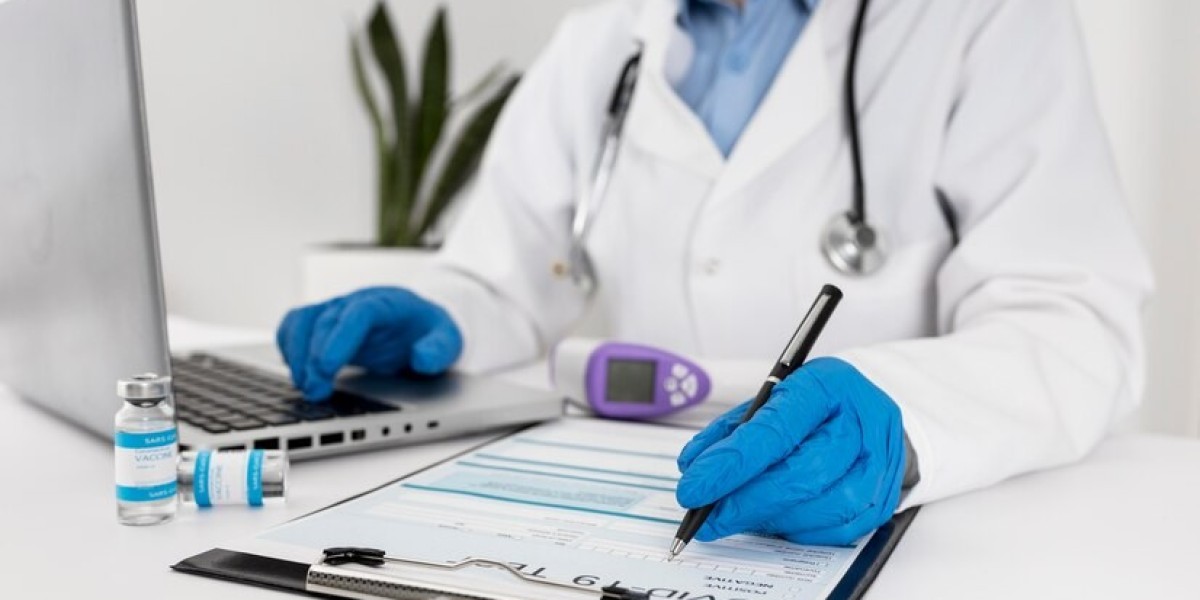Introduction
Preventive healthcare is a cornerstone of women's wellness, helping detect potential health concerns early and ensuring long-term well-being. Regular screenings and check-ups allow for early diagnosis and treatment of various conditions, from cervical and breast cancer to osteoporosis and heart disease. By prioritizing preventive screenings, women can take proactive steps toward maintaining their health and reducing the risk of serious medical conditions.
This article will explore the essential preventive screenings for women, their importance, and how to incorporate them into a wellness routine.
Discover expert care at Women's Health Specialists of Dallas. We provide comprehensive obstetrics, gynecology, infertility, and wellness services, ensuring personalized and compassionate care for women at every stage of life.
Why Preventive Screenings Matter
Many health conditions that affect women, such as breast cancer, cervical cancer, and osteoporosis, can develop without noticeable symptoms. Regular screenings enable healthcare providers to detect abnormalities early, often before they become serious. Early detection leads to more effective treatments, better outcomes, and, in some cases, even life-saving interventions.
Preventive care also helps women manage chronic conditions such as diabetes, hypertension, and high cholesterol, improving their quality of life. With a proactive approach to wellness, women can maintain optimal health and prevent complications later in life.
Essential Preventive Screenings for Women
1. Breast Cancer Screening (Mammograms)
Breast cancer is one of the most common cancers among women, but early detection significantly improves survival rates.
- When to Get Screened:
- Women aged 40-44 may choose to begin mammograms.
- Women aged 45-54 should have a mammogram every year.
- Women 55 and older can switch to mammograms every two years or continue annual screenings.
- Those with a family history or high risk should consult their doctor about earlier and more frequent screenings.
2. Cervical Cancer Screening (Pap Smear & HPV Test)
Cervical cancer screening helps detect precancerous changes in the cervix that could lead to cancer if left untreated.
- When to Get Screened:
- Women aged 21-29 should have a Pap smear every three years.
- Women aged 30-65 should have a Pap smear every three years, an HPV test every five years, or both tests together every five years.
- Women over 65 with a history of normal results may not need further screenings.
3. Osteoporosis Screening (Bone Density Test)
Osteoporosis leads to weak and brittle bones, increasing the risk of fractures.
- When to Get Screened:
- Women aged 65 and older should get a bone density test.
- Postmenopausal women with risk factors (family history, smoking, low body weight) should consult their doctor about earlier screenings.
4. Heart Disease Screening (Blood Pressure & Cholesterol Tests)
Heart disease is the leading cause of death among women. Regular screenings can help detect risk factors early.
- When to Get Screened:
- Blood pressure should be checked at least every two years.
- Cholesterol levels should be tested at least every five years starting at age 20.
- Women with risk factors like obesity, diabetes, or smoking history may need more frequent testing.
5. Diabetes Screening (Blood Sugar Test)
Diabetes can lead to serious complications, including heart disease and kidney damage.
- When to Get Screened:
- Women aged 35 and older should have a blood glucose test every three years.
- Women with risk factors like obesity, high blood pressure, or a family history of diabetes should be screened earlier and more frequently.
6. Colorectal Cancer Screening (Colonoscopy & Stool Tests)
Colorectal cancer is preventable with regular screenings to detect precancerous polyps.
- When to Get Screened:
- Women should begin screenings at age 45.
- A colonoscopy is recommended every 10 years, or stool-based tests can be done more frequently.
- Women with a family history may need earlier and more frequent screenings.
7. STD & HIV Screening
Sexually transmitted diseases (STDs) and HIV can often be asymptomatic, making screening essential for early treatment and prevention of complications.
- When to Get Screened:
- All sexually active women under 25 should be screened annually for chlamydia and gonorrhea.
- Women over 25 with new or multiple partners should continue routine testing.
- HIV testing should be done at least once and more frequently for women at higher risk.
8. Thyroid Screening (TSH Test)
Thyroid disorders can cause issues with metabolism, energy levels, and overall well-being.
- When to Get Screened:
- Women over 35 should have their thyroid levels checked every five years.
- Women experiencing symptoms like fatigue, weight changes, or hair thinning should seek testing earlier.
9. Skin Cancer Screening
Regular skin checks help detect early signs of melanoma and other skin cancers.
- When to Get Screened:
- Women should perform monthly self-exams.
- A full-body exam with a dermatologist is recommended annually, especially for those with risk factors such as fair skin, excessive sun exposure, or a family history of skin cancer.
10. Eye and Dental Exams
- Eye Exams: Women should have regular eye exams to check for conditions like glaucoma, cataracts, and vision changes.
- Dental Exams: Regular dental check-ups help prevent gum disease, which is linked to heart disease and diabetes.
How to Incorporate Preventive Screenings into Your Routine
- Schedule Regular Check-Ups: Annual wellness exams provide an opportunity for comprehensive health assessments and screenings.
- Know Your Family History: Understanding genetic risks can help determine which screenings you may need earlier or more frequently.
- Maintain a Healthy Lifestyle: Eating a balanced diet, exercising regularly, and avoiding smoking can improve overall health and complement preventive care.
- Discuss Concerns with Your Doctor: If you notice unusual symptoms, don’t wait—consult your healthcare provider as soon as possible.
- Use Health Insurance Benefits: Many insurance plans cover preventive screenings at no cost. Take advantage of these benefits to stay proactive about your health.
Conclusion
Preventive screenings play a vital role in women’s wellness by detecting potential health issues early, leading to better outcomes and improved quality of life. By staying informed and proactive, women can take control of their health and ensure they receive the necessary screenings at the right time.
Regular check-ups, a healthy lifestyle, and open communication with healthcare providers are key to lifelong well-being. Prioritize your health today—schedule your preventive screenings and take charge of your future.



